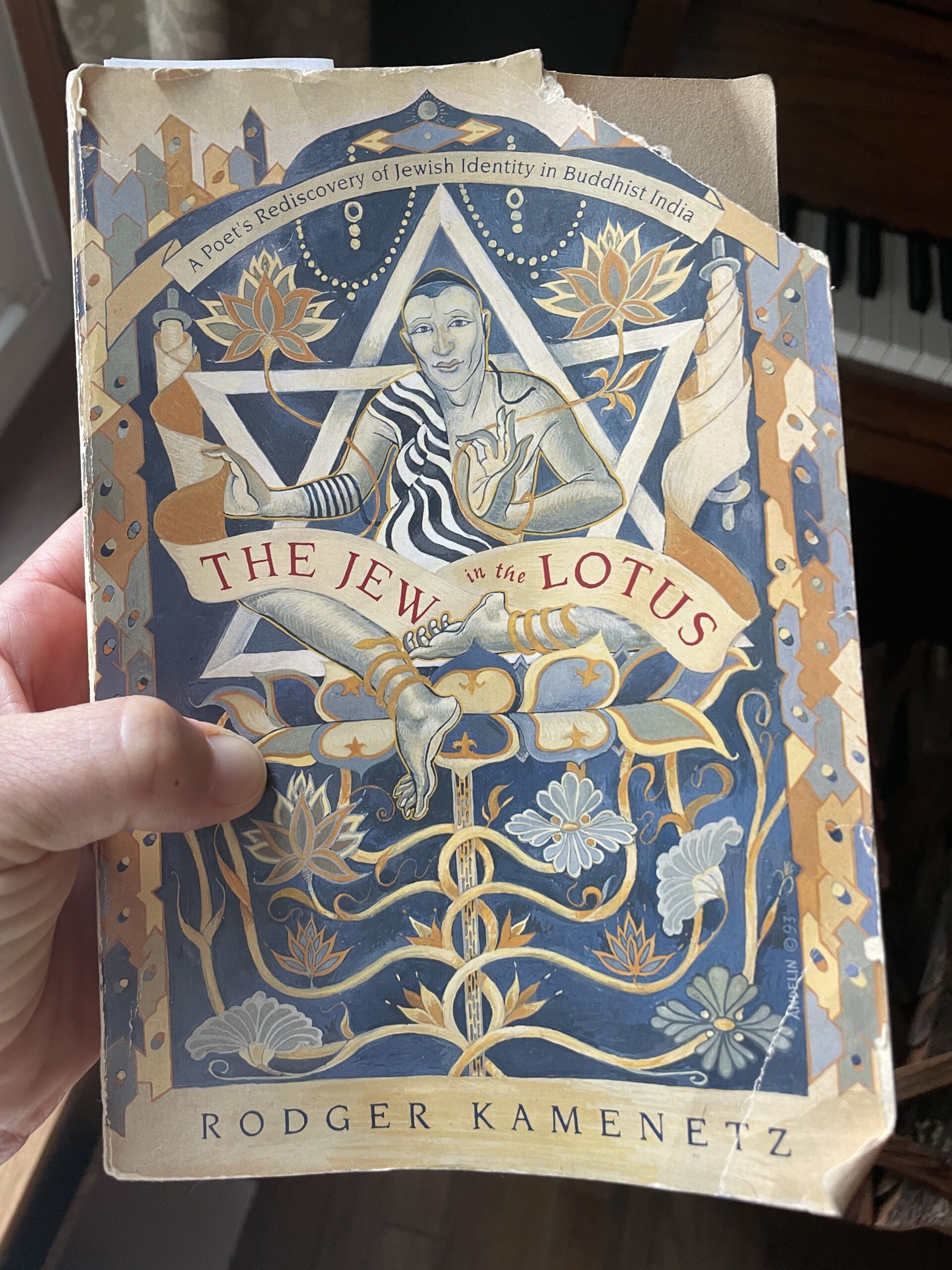
In 1994 I was a sophomore at a liberal arts college happily exploring new religious and philosophical landscapes in courses like Comparative Religion, German Literature, and Cultural Geography 101. After a childhood in metro New York fully immersed in Conservative Jewish legacy institutions, I was ready for this infusion of fresh ideas. That same year, Rodger Kamenetz published The Jew in the Lotus: A Poet’s Rediscovery of Jewish Identity in Buddhist India. I remember the book confirmed I wasn’t alone; that there were other Jews out there looking for new paths to meaningful engagement with our traditions, spiritual enlightenment, and tools to bring peace to their lives and the world around them.
I read the book again about ten years later while my sister was living at the Barre Center for Buddhist Studies (BCBS). BCBS is a sister organization of the Insight Meditation Society started in 1976 by a group of JUBUs (Jewish Buddhists), Joseph Goldstein, Sharon Salzberg and Jack Kornfield. In college my sister majored in Religious Studies during which time she led Shabbat services, studied Buddhist practices in India for a semester, and wrote a final thesis on Jewish death rituals. The way she floated between these traditions taught me a lot. It wasn’t always easy, but she demonstrated an ability to hold the two traditions at once, to take all she could from each without disrespecting the other. Living in her shadow encouraged me to continue my search for a spiritual community and practices that felt meaningful to me. And then I found Kehilat Sukkat Shalom (then The Little Minyan).
2024 marks the book’s 30th anniversary and I’m so grateful to Sharonah Laemmle for suggesting it to the KSS Book Club. Rereading it today I see it again with fresh eyes. This time around I’m struck not only by Kamenetz’s detailed retelling of an historic gathering of Jewish delegates* and the XIV Dalai Lama of Tibet in Dharamsala, India but by how the book provides a foundation for Jewish Renewal in the late 20th and early 21st centuries. As a leader in our community, I’m often asked to explain Jewish Renewal and Reconstructionism. Since I’m not a historian or trained leader but someone who has learned by doing this isn’t easy. Moving forward I’m going to remember and recommend folks read this book.
Join us August 22nd at 7:30pm on Zoom for our second conversation about the book. (That’s right – we met and discussed it in June but it’s so rich we’ve dedicated two meetings to it!) Unfortunately it’s not available in the Columbus Metropolitan Library yet – I have submitted a request that they add it to the collection. But I promise this is one you’ll want to own so you can mark it up and dog ear the pages.
Thirty years after it was published, this final paragraph from Kamenetz’s introduction is still relevant and sums up why you should read this book, at this moment in time:
“What follows, then, is the story of a historic dialogue between Jews and Buddhists. It is also the story of the movement of some Jews towards Buddhism over the past twenty years, and what this has to tell us about the problems in Jewish religious life today. But most of all, it is a story of the possibilities for Jewish renewal as I first encountered them in Dharamsala.”
*The delegation included Rabbi Zalman Schacter-Shalomi (founder of ALEPH: The Alliance for Jewish Renewal), Rabbi Yitz Greenberg (CLAL: National Jewish Center for Learning and Leadership), Rabbi Joy Levitt (the first female president of the Reconstructionist Rabbinical Association), Dr. Moshe Woldocks (co-author of THE BIG BOOK OF JEWISH HUMOR), Dr. Nathan Katz (Professor Global Jewish Studies), Dr. Marc Lieberman, Rabbi Jonathan Omer-Man (founder of Metivta: A Center for Contemplative Judaism), and Dr. Blu Greenberg, and others.
